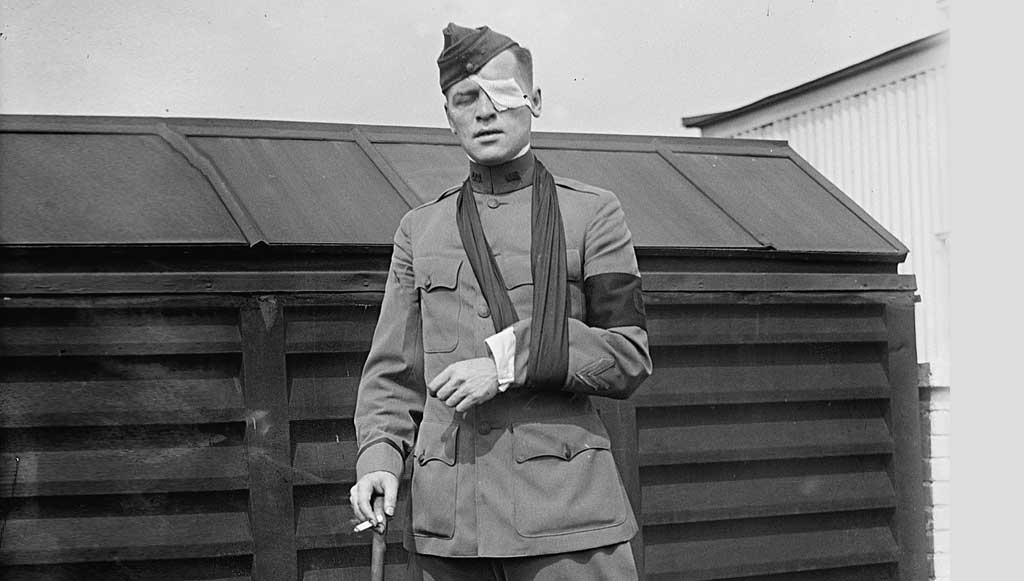Floyd Gibbons at Belleau Wood

Recent issues of both the Marine Corps Times and the Navy Times contain an article titled “The Man who made Belleau Wood—and the Marine Corps—Immortal.”[i] The article discusses Chicago Tribune reporter Floyd Gibbons who was one of 36 reporters approved by the military to report on WWI. At the start, we read the opening line form Gibbons’ dispatch on the battle. “I am up at the front and entering Belleau Wood with the U.S. Marines.” Although a non-combatant, Gibbons didn’t like reporting from the rear, preferring instead to be at the front where possible.
By early June 1918, more than 2,000 German soldiers and 30 machine guns occupied Belleau Wood. Marines on whom Gibbons reported attacked German positions on June 6. “As the Marines advanced, the enemy fire ‘was more than flesh and blood could stand’.” So wrote Col Albertus Caitlin in With the Help of God and a Few Marines. Col Caitlin, later BGen Caitlin, was a Medal of Honor recipient who was wounded, shot in the chest by a sniper, on June 6, 1918 while leading Marines in battle at Belleau Wood. Gibbons fared a bit worse, being struck by bullets in his left arm, left should blade, and left eye. Gibbons was left to lie where he’d been shot for three hours until he could be evacuated after dark. He later said that during those hours, he would pinch himself with his right hand to ensure he was still alive.
The military news censor incorrectly thought Gibbons was dead and decided to honor his sacrifice by allowing his last dispatch to be published as written. This, one might think, was serendipity, because up to that time correspondents were not allowed to name the troops they were with or where they were. The Washington Post reported that since the censor allowed Gibbons’ dispatch to be published with the sentence naming Belleau Wood and the U.S. Marines, the privilege of naming names was extended to all correspondents. “For three days, reports of Marines in action at Belleau Wood went uncensored, and the American public, hungry for news of the war, were regaled with stories of the Devil Dogs as they fought in close-quarters combat with fixed bayonets,” and under machine gun fire. 4,000 Marines were wounded and another 1,000 killed, which was an attrition rate of 55%, according to historian George Clark in Devil Dogs: Fighting Marines of WWI, who goes on to say that that Marine losses at Belleau Wood exceeded losses in all of the Corps’ previous history.
Gibbons, who lived 21 more years after the battle, gave credit for victory to the 9,500 men of the 4th Marine Brigade, even though soldiers of the Army’s 2nd Division of the American Expeditionary Forces fought alongside the Marines. George Clark observed about this, “The Germans were good, the Marines were better.”
[i] The article may be found here: https://www.navytimes.com/off-duty/military-culture/2024/04/24/the-man-who-made-belleau-wood-and-the-marine-corps-immortal/

